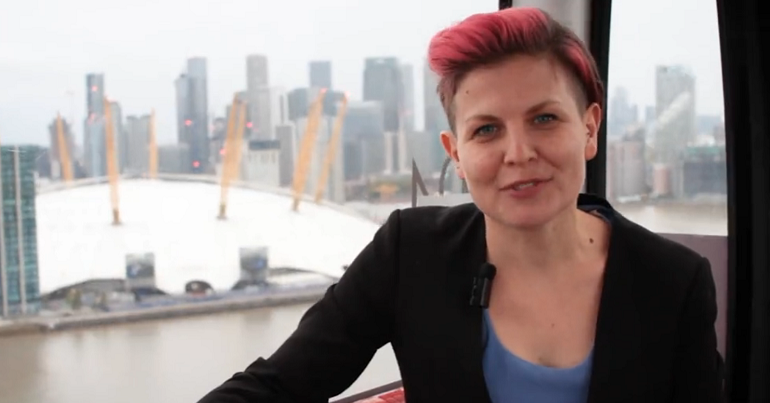On immigration
It is very tempting for the liberal left to scream “racist” every time the subject of immigration comes up. But if we do so without understanding the material problems for which “immigration” has become a political proxy, we risk driving people into the arms of the right.
I wrote around this time last year about my experiences canvassing in council estates in which people consistently raise immigration as a major problem. My response is always to ask what problem it is that immigration has caused. In general, I think there are three answers – though these are very much tied together:
1) “They’re taking our jobs”.
Over the last few decades, there has been a rise in unemployment. Until the 1970s, job creation was the primary economic policy goal of the government – unemployment and economic failure were seen as one and the same. from 1945 to 1975, there were never more than 500,000 people in this country out of work. Since then, successive governments have chosen to accept structural unemployment. We haven’t had fewer than 500,000 unemployed since the mid-70s. This means that many parents have seen their children grow up, and struggle to find lasting work. This unemployment is a real problem, but the approach of the last 30 years – the government closing its eyes, crossing its fingers, and hoping the free market will fill the gap – has failed. With unemployment has come instability at work, as employees know they are much more replaceable than they used to be. No wonder people are cross.
Overall, immigration does not cause unemployment. With every pair of hands comes a mouth. There is not a set number of jobs per country – there are more jobs in the USA than there are in Luxembourg. That doesn’t mean that there aren’t specific impacts in particular communities or particular industries. But the net impact of immigration on employment over time is basically on nil (or, at least, it’s difficult to say exactly what it will be, and it will depend on particular contexts). If the Polish plumber buys stuff from the local shop, then she is helping create the jobs which replace the one she is taking. It is true that a surplus of labour will push down wages, but given that money can move much faster than people, the mobility of capital (“shipping our jobs overseas”) is much more significant. Britain has a demographic dearth of young people – there is plenty potential for people to come here and work – in fact, if they don’t, how the hell are we ever going to pay for our parent’s pensions?
However, the right have done a good job of explaining, in simple terms, why people can’t find jobs: immigration. And so people believe it. The liberal left have, by accepting free market capitalism, lost any chance to provide a simple counter narrative. And so instead, people shout ‘racist’ rather than asking ‘what has driven this person to racism?’. And my experience is that, when someone says ‘they’ve taken our jobs’, it is easy to help them re-focus from immigrants and onto the people who really have messed up the economy. It only takes one word: “bankers”.
2) “They are taking our council houses”.
You get this a lot. Usually, in my experience, you hear it from a parent: “my daughter can’t get a council house, but that Arab family down the street…”
Again, there is a genuine problem here. Almost no council houses have been built in recent decades. With the continued right to buy, stock is disappearing rapidly into the private housing market. There simply aren’t enough of the things to go around. Immigrants don’t get any priority, but you can see how people end up angry – the provision that my parents generation used to have simply isn’t there.
But again, the liberal left has no real analysis of the housing market. Unless you believe in the social provision of housing – basically, unless you think that the failure of the Labour government to build new housing was disastrous – how do you explain this genuine problem people are experiencing? It’s easier to let the right blame it on immigrants, and then shout abuse at anyone who believes them than it is to challenge the failed free market dogma that genuinely causes the problem.
3) “I used to know my neighbours”.
This is, I think, a genuine problem in Britain today, and I suspect that it does have something, partly, to do with migration.
Let’s take the example of me. I grew up in rural Perthshire, studied at Edinburgh University, and then moved to Oxford because I got a job there. I have lived in 2 different houses in Oxford over the last 2 years, working on 2 separate short term (year long) contracts. In both of those houses, I haven’t really known my neighbours. I don’t suspect that either I, nor they, will live where we do for long enough that we will have the time to get to know each other.
As Shiv Malik and Ed Howker document in their excellent book ‘Jilted Generation’, it is almost impossible for my generation to settle down. A huge portion of us live at home with our parents, or travel round the country looking for work. This is what a ‘flexible labour market’ looks like. As people have been encouraged to specialise in their careers, to switch regularly between employers, and to find a new job every couple of years, we have lost the ability to put down roots and get to know our neighbours. As a generation has been denied council housing, and can’t afford a mortgage on our increasingly depressed wages. We move from contract to contract, year to year. David Cameron tells us that real integration into a community takes time. And he is right. I am only just, after 2 years, beginning to integrate into my small corner of Oxford. It would take many more years for me to get to know and trust the neighbours up and down my street. And even if I stayed that long, they certainly won’t.
So, yes, migration is bad for community spirit. But the problem isn’t that the odd family comes to your street from another country and stays for 30 years. The problem is short term, internal migration. It comes from people being forced to move round the country to find work. It is easy to spot migration when the migrants have a different colour of skin from most of the people who were there when they arrived. But it isn’t them who cause the problem. It’s me. It’s my generation – and the fact that we have had built for us an economy that fails to provide stable and secure work and stable and secure housing. Our communities are being destroyed, and it is free market capitalism that is trashing them.
And again, we need to find a way to explain this problem. Because when David Cameron says that our communities are breaking down, and immigration is to blame, he is touching a nerve. He is explaining a problem people feel, and he is diagnosing a cause that sounds plausible. And so when people say that they don’t know their neighbours anymore, let’s not just shout that they are racist. Let’s try to find a way to talk about the onslaught on our communities that has come from the freeing of our markets. Because if people believe that immigration is causing the problems that they experience, and if they we tell them that they are racist for wanting to stem these problems, then eventually, they will decide that they are racist.



Some aspects of immigration are good for certain sectors of society and many more aspects are bad for other people. We need to be told the truth about the actual costs of immigration, and who is paying these costs.
Thanks, Adam, for a useful, thoughtful way of approaching the problems that many have accepted are due to immigration. As an activist I have struggled to find the arguments to counter their opinions, but I think you might have just made it easier for me.
I definitely agree that this is the stuff to focus on. Idealism is all well and good, but if you’re clearly from a more privileged background than the person whose daughter can’t get a council house, who’s lost their job and feels isolated from their community, and has been told convincing lies about this all being due to immigrants, then they’re just going to think you’re a dick if you launch into some kind of cosmopolitan manifesto.
Wouldn’t it be nice if Labour actually started conversations about these things? These absolutely central social and economic questions. Seems a forlorn hope though.
Hi Jim,
Yes, I love immigration too. And part of my point I guess is that most people don’t hate immigration. They just don’t like things that they’ve been told immigration causes.
If that makes sense,
Adam
Can I just say that I think immigration *is* great. It’s also a line that works very well in the London estates I’ve canvassed.
Free movement is a right we demand for ourselves (UK citizens) but often think to deny others. I don’t think that’s cool.
Now, that’s not to say there aren’t useful discussions to have about any problems that arise or situations that need to be accounted for but I think our starting point is that we want a world where people are free rather than defined by the colour of their passport or which side of a line on a map they were born on.
Hello,
Yes, I agree.
But my main point isn’t that we should go around saying “immigration is great”, but that we should talk about unemployment, the housing crisis, and the loss of community, and we should find simple ways to explain what it is that is causing these problems…
I basically agree, but: Even if it were true (which it isn’t) that immigration causes unemployment for large swathes of the working class in the UK, we should still support people’s right to freedom of movement. Unequal possession of the right to live/work in the UK creates inequality in the same way as unequal ownership of wealth, and we should oppose both. Even if at times it means harming British people to help Romanian/Angolan/Bangladeshi people. The danger with the purely economic argument is that it supports Cameron’s premise that we should only let people in if they make us better off economically, which suggests we should have some kind of points-based system.
As usual this comes with the caveat that politics is not my comparative advantage, so I don’t know how to frame a commitment to `no borders’ so it isn’t a vote loser for socialist/green parties.
“Unemployment and inflation are not caused by immigration. Bullshit! Come off it! The enemy is profit.”
As the chant goes.